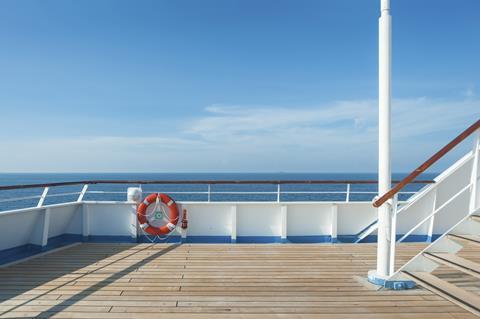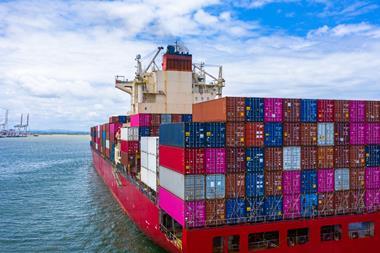Rocco Bozzelli, head of global insurance at MSC Cruises SA, shares how the company deals with crisis and why he thinks insurers are letting down their side of the bargain
How is your organisations structured to react to unexpected geopolitical crises?
The MSC cruises are floating assets. And this, of course, brings risks but it also gives flexibility.

So, look at the last geopolitical crisis situation in the Red Sea.
We used to have a very nice itinerary for Red Sea cruises, [but when the crisis hit] we moved the ship and we reorganised the itinerary, and the Red Sea voyages become an additional cruise on the eastern side of Mediterranean.
So, we are equipped with contingency plans and able to react to geopolitical crisis.
For MSC cargo or container ships, again, we have the flexibility of operating ships. The Red Sea crisis was a very recent example of how a geopolitical crisis affected the crisis management decisions and operational decisions in both the cruise and cargo companies.
Are you personally a member of your company’s crisis team?
I am and it’s a very proactive crisis management team.
At the end of the day, we carry the most sensitive type of cargo, which is people, in the most sensitive time, which is holiday time. So it’s really our top priority to have a very specific contingency plans.
And I would say in the case of crisis situations, really the involvement comes from top management down the reporting lines.
Unfortunately, the cruise industry was touched by Covid, which was a perfect storm for the industry. And we had really a practical case where contingency plans had to be adopted.
As often happens during the crisis, we learnt more about those plans and it was an opportunity to redesign those processes within the organisation.
But it’s a very serious topic and we take it from top management to each operational department, including, of course, the insurance department and operations.
How do you protect your workforce in times of crisis?
The staff element is a very sensitive and important one.
Coming back to Covid time, our ships need a minimum crew on board, even if there are no guests.
Keeping crew on board in such a stressful time, with borders closures so it is not possible to come back home, we had to give a lot of psychological support to our staff.
And again, if you look at one of our large ships, we have more than 6,000 passengers, and more than 2,000 crew members. So, we talk about the floating village of 8,000 people
It’s then a human issue, and the staff element is very important during crisis management situations.
How do you manage to get meaningful insurance coverage in case of war or acts of terrorism?
I want to be a bit more a bit provocative on that, because what we look for with our insurance partners is really a partnership, not a commercial transaction.
So I think that we transfer central risk to our insurance to protect our balance sheet agenda and our risk situation.
Sometimes, to me, it’s a situation that shows how certain insurers take an opportunistic approach.
War risk for many years was seen as a very nice risk to have with a very low loss ratio, and very nice commissions for brokers. And then the moment that the risk becomes tangible, then we see a number of actors stepping out from the market.
Then we have limited solutions for our difficulties. We need to retain more risk in certain situations and I don’t think it’s a fair approach.
So, we manage our scenarios pretty well I think. But coming back to the Red Sea, just to give you a practical example, the war breaches areas in navigation, which are defined by general committee at Lloyd’s.
The rating before the Middle East crisis for one breach was 0.005%. And now we see rates above 1%. So limited capacity, increased costs. And the insurance element for shipping companies become really an operational element about the decision making.
So, I think that this concept of partnership maybe will need to be revisited, and maybe the mutuality element is an interesting one to consider. Maybe we need to revisit this retreat from the insurance industry when certain risks become tangible.
In the Red Sea, you see how many ships are now deviating which means probably more days of navigation, which is additional costs and also delays for the final delivery of the goods. So [lack of insurance] is an element of the operational risk assessment decision.
What is the role of brokers?
The brokers can do a really great job to explain to help the dialogue between the insured and the insurers to better understand those risks. And to ensure that all the measures that are taken to minimise or to reduce those risks will be reflected in a good rating and good insurance terms.
So, I think the brokers can help on the dialogue and maybe become more consultants of the insureds to better present those risks. And why not also to innovate and try new solutions?
What strategies do you have in place to deal with evacuations?
In terms of the cruise ships, it’s something that we have faced many times. For instance, we may have a guest injured or with some problems on board, so we are pretty much organised.
Then if you talk more about a crisis management evacuation, again, we had the situation during Covid whereby we needed to send back home thousands of passengers and freelancers.
So, we have really the practical skills and the procedure and application, and the Covid experience was a great experience to assess internally how the management procedures need to be improved.











No comments yet